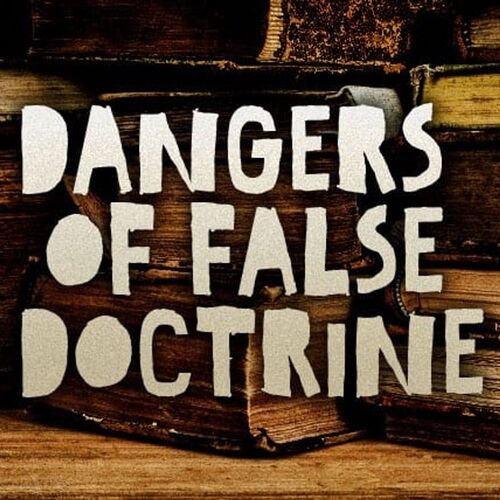
Questions About False Doctrines
Podcast
Seasons
Season 1 EpisodesNewest
About
Doctrine is “a set of ideas or beliefs that are taught or believed to be true.” Biblical doctrine refers to teachings that align with the revealed Word of God, the Bible. False doctrine is any idea that adds to, takes away from, contradicts, or nullifies the doctrine given in God’s Word. For example, any teaching about Jesus that denies His virgin birth is a false doctrine, because it contradicts the clear teaching of Scripture (Matthew 1:18).As early as the first century AD, false doctrine was already infiltrating the church, and many of the letters in the New Testament were written to address those errors (Galatians 1:6–9; Colossians 2:20–23; Titus 1:10–11). Paul exhorted his protégé Timothy to guard against those who were peddling heresies and confusing the flock: “If anyone advocates a different doctrine and does not agree with sound words, those of our Lord Jesus Christ, and with the doctrine conforming to godliness, he is conceited and understands nothing” (1 Timothy 6:3–4).As followers of Christ, we have no excuse for remaining ignorant of theology because we have the “whole counsel of God” (Acts 20:27) available to us—the Bible is complete. As we “study to show ourselves approved unto God” (2 Timothy 2:15), we are less likely to be taken in by smooth talkers and false prophets. When we know God’s Word, “we are no longer to be children, tossed here and there by waves and carried about by every wind of doctrine, by the trickery of men, by craftiness in deceitful scheming” (Ephesians 4:14).It is important to point out the difference between false doctrine and denominational disagreements. Different congregational groups see secondary issues in Scripture differently. These differences are not always due to false doctrine on anyone’s part. Church policies, governmental decisions, style of worship, etc., are all open for discussion, since they are not directly addressed in Scripture. Even those issues that are addressed in Scripture are often debated by equally sincere disciples of Christ. Differences in interpretation or practice do not necessarily qualify as false doctrine, nor should they divide the Body of Christ (1 Corinthians 1:10).False doctrine is that which opposes some fundamental truth or that which is necessary for salvation. The following are some examples of false doctrine:• The erasing of hell. The Bible describes hell as a real place of eternal torment, the destination for every unregenerate soul (Revelation 20:15; 2 Thessalonians 1:8). A denial of hell directly contradicts Jesus’ own words (Matthew 10:28; 25:46) and is therefore a false doctrine.• The idea that there are “many paths to God.” This philosophy has become popular recently under the guise of tolerance. This false doctrine claims that, since God is love, He will accept any religious effort as long as the practitioner is sincere. Such relativism flies in the face of the entire Bible and effectively eliminates any need for the Son of God to take on flesh and be crucified for us (Jeremiah 12:17; John 3:15–18). It also contradicts Jesus’ direct words that He is the only way to God (John 14:6).• Any teaching that redefines the person of Jesus Christ. Doctrine that denies the deity of Christ, the virgin birth, His sinless nature, His actual death, or His physical resurrection is false doctrine. A group’s errant Christology readily identifies it as a sect or cult that may claim to be Christian but is actually teaching false doctrine. Even many mainline denominations have begun the rapid slide into apostasy by declaring that they no longer hold to a literal interpretation of Scripture or the deity of Christ. First John 4:1–3 makes it clear that a denial of biblical Christology is “anti-Christ.” Jesus described false teachers within the church as “wolves in sheep’s clothing” (Matthew 7:15).• Teaching that adds human religious works to Christ’s finished work on the cross as necessary ingredients for salvation. This teaching may pay lip...
1 Season
© 2021 Spreaker (OG)